3 Sweat Community Members Share Their Stories For Multiple Sclerosis Awareness Month

March 23, 2023
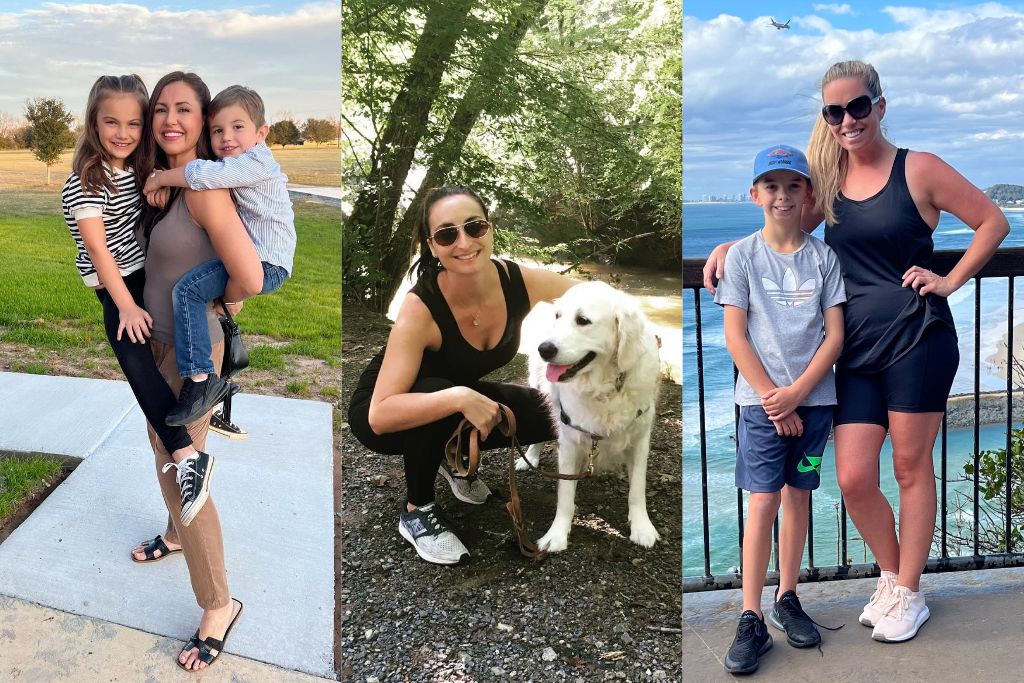
This Multiple Sclerosis Awareness Month, we caught up with three members of the Sweat Community who have Multiple Sclerosis - Hannah, Lisa and Jamie - to learn about how MS has impacted their lives, how their workout schedules have changed, and their advice for others living with this disease.
According to MS Australia, nearly three million people live with MS worldwide, with the average age of diagnosis being between 20 and 40. It’s the most common chronic neurological disease affecting young adults and results in a range of symptoms, making everyone’s experience of the disease different.
Before we hear their stories, it’s important to understand what Multiple Sclerosis is.
What is Multiple Sclerosis?
Multiple Sclerosis, aka MS, is a chronic immune disease that impacts the central nervous system - your brain, spinal cord and optic nerves - which control everything you do. According to Mayo Clinic, when you have MS your body’s immune system mistakenly attacks the protective sheath covering your nerve fibres, which causes communication problems between your brain and the rest of your body.
A helpful analogy can be to think about the protective covering on electrical cables or your charger cords. If that covering is damaged and the wire beneath is exposed, it no longer functions in the way or speed that it normally would.
Depending on the severity of this nerve fibre damage, MS symptoms can include numbness, tingling or weakness in your limbs, a lack of coordination, impaired vision or vision loss, fatigue, slurred speech, vertigo, an inability to walk, cognitive or mood problems, or issues with other bodily functions like your bowel and bladder.
MS symptoms are unique to each individual and sufferers might go through periods of relapse and remission where symptoms develop over a period of days or weeks, before being followed by quiet periods.
The cause of Multiple Sclerosis is also unclear, with many contributing factors such as genetics and environment. While there are treatment pathways and different types of MS, unfortunately there is no cure.
For Hannah, Lisa and Jamie, living with MS is an unpredictable and difficult journey, and we are so grateful they have shared their stories with us. If you want to learn more about MS, we would recommend you seek out organisations dedicated to advocacy, education and fundraising within this space. Not sure where to start? Take a look at MS Australia, the National Multiple Sclerosis Society in the USA, The MS Society in Canada or the MS Society in the UK.
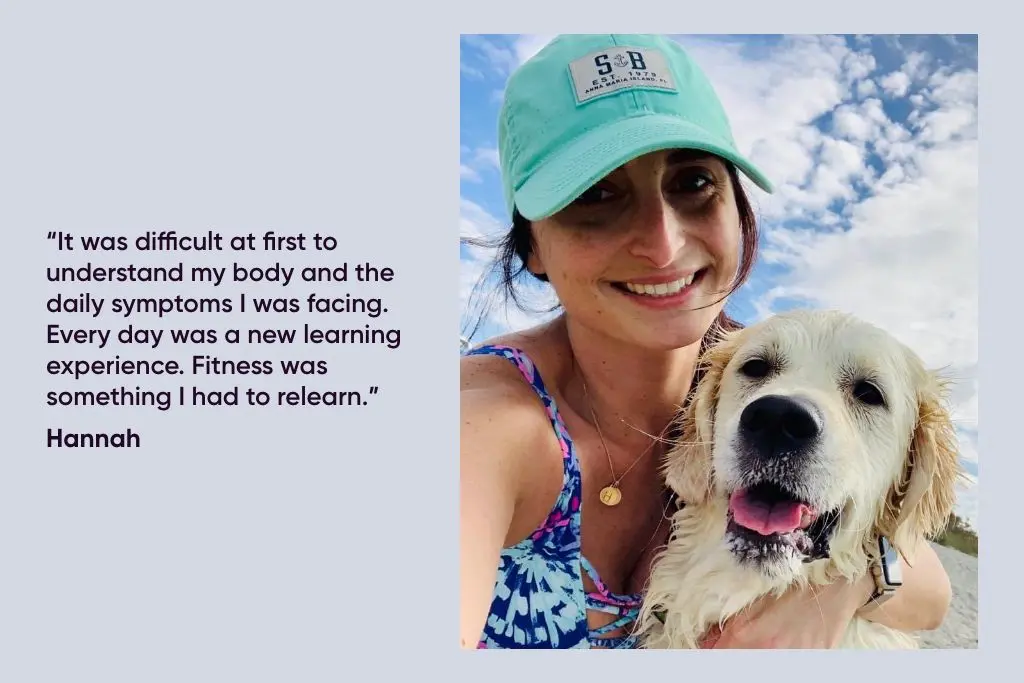
A journey of rediscovery
For these three women, being diagnosed with MS was followed by a period of rediscovering their bodies and redefining their relationship with fitness.
Hannah was diagnosed with RRMS (Remitting Relapsing Multiple Sclerosis) at age 29, in November 2017.
“It was difficult at first to understand my body and the daily symptoms I was facing. Every day was a new learning experience. Fitness was something I had to relearn,” she says. “Slowly it began to consistently be a part of my life and I respect what it provides for me.”
Lisa was diagnosed two years later in September 2019, after dealing with blurred double vision in one eye for about a week.
“I took myself off to the emergency department and was diagnosed,” she recounts. “I try to prioritise my lifestyle and fitness more since being diagnosed, however life, kids and fatigue sometimes get in the way.”
Jamie’s diagnosis was in May 2022, and since then she has had to really learn what it means to listen to her body and scale back the intensity of her workouts. “It’s important to know now when I am overly stressing myself physically.”
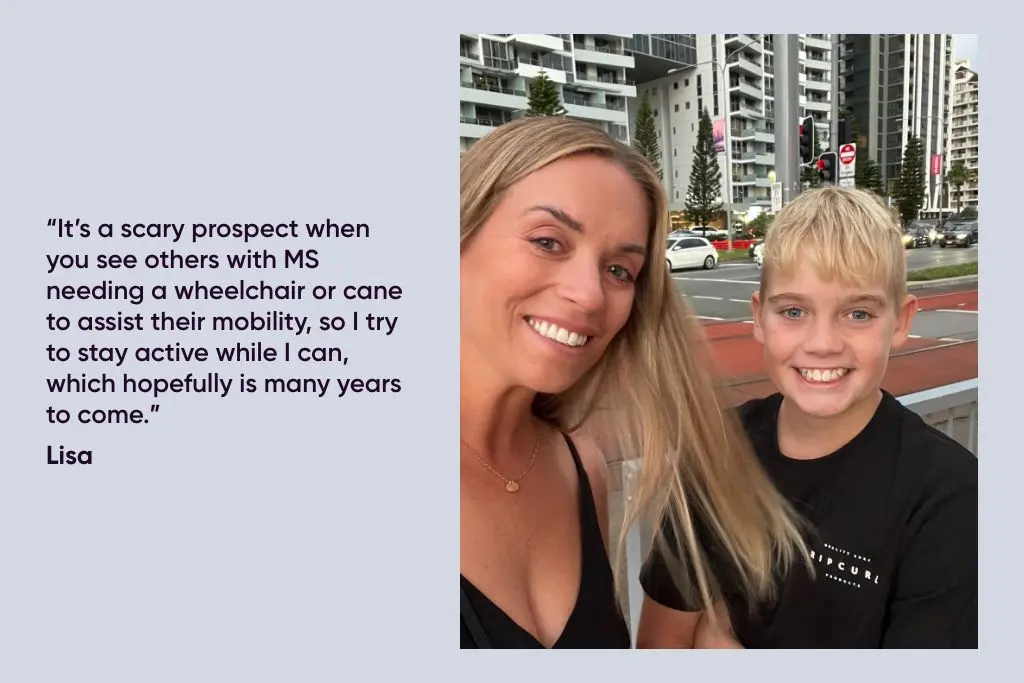
The power and joy of movement
Aside from the range of different prescribable treatment options, MS Australia highlights how many of the symptoms associated with MS can be improved or reduced with exercise.
Exercise doesn’t pose a greater risk for people with MS than for those without it and research has also shown exercise is not associated with increased risk of relapse or risk of adverse events.
Keeping active is a great way to stay strong, improve your balance, coordination and ability to do everyday tasks, as well as boosting your mood, energy and cognitive function.
Hannah couldn’t agree with this sentiment more, saying that for her, fitness means LIFE. Leading an active lifestyle gives her a huge mental, physical and emotional boost every day.
“I know that when I wake up in the morning and accomplish a workout, everything else falls into place. It’s a huge check off the list for myself,” she says. “The more I move it, the more it moves for me. It’s an accomplishing feeling.”
Since her diagnosis, Lisa tries to be more consistently active and lift, walk or run where she can, knowing it helps to battle the fatigue that comes with the disease. “It’s a scary prospect when you see others with MS needing a wheelchair or cane to assist their mobility, so I try to stay active while I can, which hopefully is many years to come.”
And for Jamie? The big priority is moving her body in a way that makes her feel good. Some days, that’s lifting weights and pushing herself out of her comfort zone, while other days it might be a walk or a barre workout.
“Stress is a huge trigger of MS flares and moving my body always helps me mentally decompress. Even a quick workout or some light movement makes me feel better.”
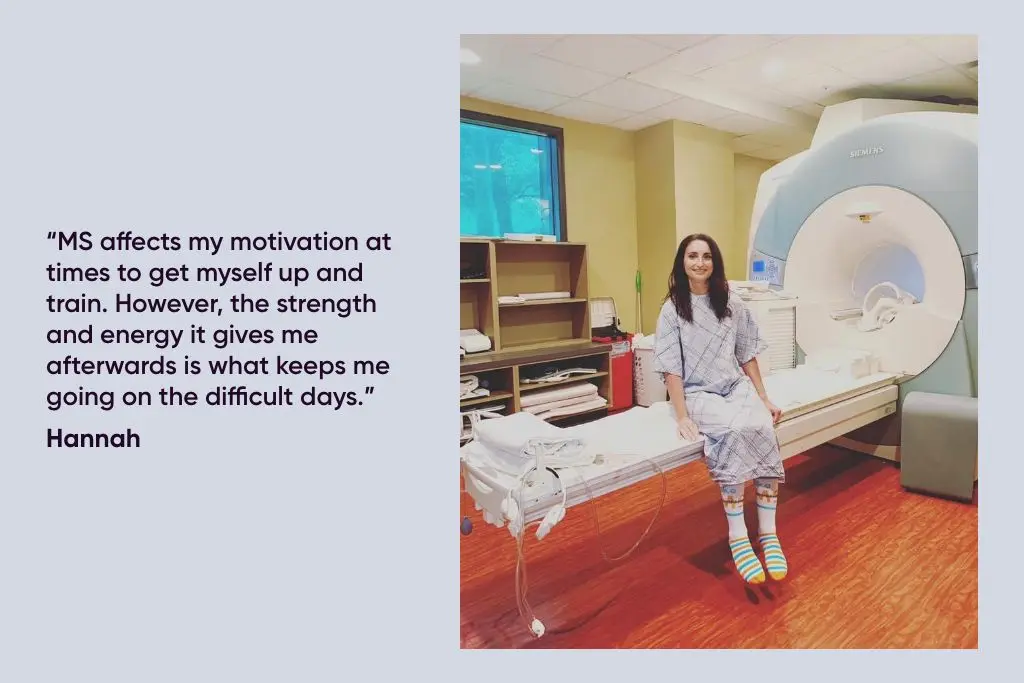
When things get tough
Of course, not every day is the same when you’re living with MS, and following a structured, predictable fitness routine just isn’t always possible.
“Some weeks I need to lower the intensity or add more rest days,” says Jamie “I also take a monthly DMT (disease modifying treatment) injection which lowers my immunity. I plan more rest after my injection and slowly increase my physical activity after my energy returns.”
Some mornings are more challenging for Hannah than others - physically, mentally and emotionally - but she tries to schedule her health and fitness alongside her treatments as it has kept the progression of her symptoms at bay.
“For me, I have brain fog, tingling in my extremities, Lhermitte’s Sign (a shock sensation when bending your neck downwards), fatigue and nerve pain, along with a few others. MS affects my motivation at times to get myself up and train. However, the strength and energy it gives me afterwards is what keeps me going on the difficult days.”
Lisa finds her symptoms get worse when she overheats or overdoes it in a workout, a perfect illustration of how varied MS symptoms can be, so she’s careful to listen to her body in each session.
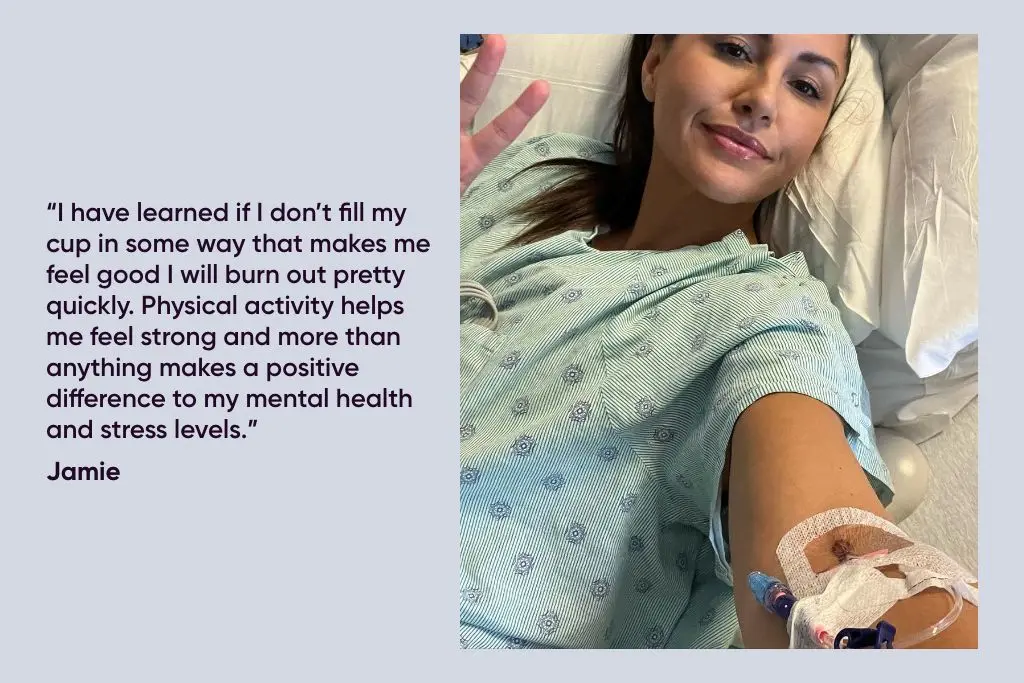
Relax and reset
All three women agree on the importance of self-care, both for themselves and their loved ones. Whether it’s exercise, a massage or a facial, Lisa says taking the time to do things that bring her joy and relaxation is essential.
“Self-care feels like giving myself back to me instead of letting MS take that away,” says Hannah, who starts her day with exercise before her mind can start chirping away about things that could make her feel stressed or anxious.
“It’s like hitting a restart button on my body and mind. Also, Sundays are my rest days and I relax to the fullest!”
Jamie’s days are kept busy with two small children and her work as a Nurse Anethesist, and she’s learned that giving back to herself makes a big difference.
“I have learned if I don’t fill my cup in some way that makes me feel good I will burn out pretty quickly. Physical activity helps me feel strong and more than anything makes a positive difference to my mental health and stress levels.”
Raising awareness and encouraging kindness
From speaking to these three incredible women, there’s a resounding message of three things they want people to know about MS.
Firstly, for each person diagnosed, it’s a totally different experience. Secondly, they have found that leading a healthy, active lifestyle can provide significant benefits to their wellbeing and daily life. And finally, to treat everyone with kindness. People with MS don’t necessarily look sick or have visible symptoms, and you can never judge a person’s health or what they are going through from the outside.
“People assume you’re fine but you might be struggling with things like numbness and tingling, depression, balance, vision, spasms, and many more issues. It is unpredictable and comes and goes without warning. Fatigue has been one of my worst symptoms. The kind you can’t get enough sleep to resolve - something difficult to explain to a four and seven-year-old,” Jamie explains.
Words of wisdom for women with MS
All three women know how difficult it can be to grapple with the reality of this disease and the shock of that initial diagnosis.
“I’m not going to lie, MS has its difficulties, but don’t let those difficulties and fears become you,” Hannah says when asked for her advice. “Give yourself time, try not to become frustrated, and learn as much as you can from your body. Our bodies are remarkable. What we go through with MS isn’t for the weak of heart. Remember who you were before your diagnosis, remember the strength you had during your diagnosis, and remember those tough times have built the strength you need for this day and the next.”
Lisa also gives a nod to listening to your body and its signals . “My advice to anyone with MS would be do what you can do when you feel up to it. You will feel great after exercising, for taking the time for yourself, and for resting when you need to - even if it means tucking yourself in bed at 8pm!”
In Jamie’s eyes, it’s key to give yourself some grace, especially when it comes to fitness. “Have a plan and follow a program if you are looking to get stronger, but never feel defeated if you have to adjust it to fit your needs. Reach out to others who have MS for support. You are definitely not alone. We all have down days. We just don’t stay down.”

A more empowered you starts with Sweat, and our editorial team is here to bring you the latest fitness tips, trainer recommendations, wellbeing news, nutritional advice, nourishing recipes and free workouts.
* Disclaimer: This blog post is not intended to replace the advice of a medical professional. The above information should not be used to diagnose, treat, or prevent any disease or medical condition. Please consult your doctor before making any changes to your diet, sleep methods, daily activity, or fitness routine. Sweat assumes no responsibility for any personal injury or damage sustained by any recommendations, opinions, or advice given in this article.
Community